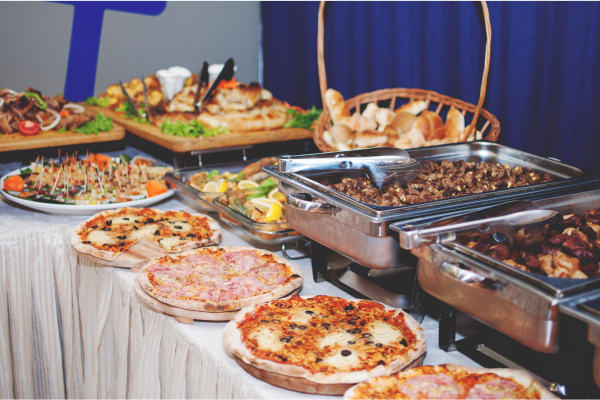Starting a catering business in Kenya is a rewarding venture that combines creativity with a passion for food. With the country’s growing demand for event services, from weddings and corporate events to private parties, the catering industry presents a lucrative opportunity for entrepreneurs. However, like any other business, starting a catering service requires careful planning, market research, and adherence to legal and regulatory frameworks. This article provides a comprehensive guide on how to start a catering business in Kenya, outlining the key steps and considerations to help you establish a successful venture.
Market Research and Business Planning
Before diving into the catering business, it’s essential to conduct thorough market research. Understanding the local demand for catering services, identifying your target market, and analyzing competitors will give you insights into how to position your business. In Kenya, the demand for catering services is high in urban areas such as Nairobi, Mombasa, and Kisumu, where events are frequent.
Once you’ve gathered enough information, the next step is to develop a detailed business plan. Your business plan should outline your business model, target market, pricing strategy, and marketing plan. Additionally, include a financial plan that details your startup costs, projected income, and a break-even analysis. A well-structured business plan will guide your operations and help you secure funding if needed.
Choosing Your Niche
The catering industry is diverse, and choosing a niche can help you stand out in the market. Whether you specialize in corporate catering, wedding catering, or private parties, identifying a niche allows you to tailor your services to meet specific customer needs. Some caterers in Kenya focus on traditional Kenyan cuisine, while others offer international cuisines, including Italian, Chinese, or Indian.
Consider your expertise and passion when choosing a niche. If you have a background in baking, you might consider focusing on desserts and confectionery catering. Alternatively, if you’re passionate about healthy eating, you could specialize in providing organic or vegan catering services. By focusing on a niche, you can develop a strong brand identity and attract clients who are specifically looking for the services you offer.
Registering Your Business
To operate legally in Kenya, you must register your catering business with the relevant authorities. Start by registering your business name with the Registrar of Companies. Depending on your business structure, you can register as a sole proprietorship, partnership, or limited liability company.
Next, obtain the necessary licenses and permits. In Kenya, a food handling certificate is required for anyone involved in the preparation and handling of food. You’ll also need a business permit from your local county government. Additionally, ensure that your kitchen and food storage facilities meet the health and safety standards set by the Ministry of Health. Compliance with these regulations is crucial for operating a legitimate and trustworthy business.
Setting Up Your Kitchen
The kitchen is the heart of any catering business. Whether you’re starting from home or renting a commercial kitchen, having the right equipment and facilities is essential for delivering quality services. Invest in high-quality kitchen appliances, such as ovens, stoves, refrigerators, and food processors, to ensure efficient operations.
If you’re operating from home, ensure that your kitchen is spacious, clean, and well-organized. Separate your personal kitchen activities from your business operations to maintain hygiene standards. If you plan to scale your business, consider renting a commercial kitchen or setting up your own dedicated space. A well-equipped kitchen not only improves productivity but also enhances the quality of the food you prepare.
Menu Development and Pricing
Your menu is a key selling point for your catering business. Develop a diverse and appealing menu that caters to different tastes and dietary preferences. Include a variety of options, such as appetizers, main courses, desserts, and beverages. If you specialize in a particular cuisine, highlight your signature dishes to attract customers who are looking for unique culinary experiences.
Pricing your menu requires careful consideration. You need to strike a balance between affordability and profitability. Consider the cost of ingredients, labor, overheads, and the competitive landscape when setting your prices. Offering different packages, such as buffet, plated, or à la carte services, can help you cater to a wider range of clients and budgets.
Marketing Your Catering Business
Effective marketing is crucial for attracting clients to your catering business. Start by creating a strong online presence through a professional website and active social media profiles. Use high-quality images and videos of your dishes to showcase your culinary skills. Additionally, encourage satisfied clients to leave reviews and testimonials on your website and social media pages.
Networking is also important in the catering industry. Attend industry events, trade shows, and food festivals to connect with potential clients and other professionals in the industry. Building relationships with event planners, wedding coordinators, and corporate clients can lead to valuable referrals. Consider offering tasting sessions or promotional discounts to attract new clients and generate word-of-mouth marketing.
Hiring and Training Staff
As your catering business grows, you’ll need to hire staff to help with food preparation, service, and logistics. Hiring the right team is crucial for maintaining the quality and consistency of your services. Look for individuals with experience in the catering industry, particularly in food preparation and event service.
Training is essential for ensuring that your staff meets the standards of your business. Provide comprehensive training on food safety, customer service, and event setup. Encourage your staff to be proactive, detail-oriented, and responsive to client needs. A well-trained team can enhance the reputation of your business and ensure that every event runs smoothly.
Managing Logistics and Operations
Logistics are a critical aspect of catering, particularly when it comes to transporting food and equipment to event venues. Invest in reliable transportation that can accommodate large quantities of food and equipment. Ensure that your delivery vehicles are equipped with the necessary storage and cooling facilities to maintain the freshness and quality of the food.
Operational efficiency is also key to the success of your catering business. Develop a system for managing orders, tracking inventory, and scheduling events. Use software or apps designed for catering businesses to streamline your operations and reduce the risk of errors. Efficient logistics and operations are essential for delivering a seamless catering experience to your clients.
Financial Management and Growth
Effective financial management is vital for the sustainability and growth of your catering business. Keep accurate records of your income and expenses, and regularly review your financial statements to monitor the performance of your business. Budgeting and cash flow management are crucial for ensuring that your business remains profitable.
As your business grows, consider reinvesting profits into expanding your services, upgrading equipment, or marketing. Explore opportunities to diversify your revenue streams, such as offering cooking classes, selling packaged foods, or providing catering services for corporate clients. Continuous innovation and expansion can help you stay competitive in the dynamic catering industry.
Conclusion
Starting a catering business in Kenya offers a wealth of opportunities for entrepreneurs with a passion for food and hospitality. By conducting thorough market research, choosing a niche, and adhering to legal and regulatory requirements, you can establish a successful catering business that meets the needs of a diverse clientele. With a focus on quality, customer service, and operational efficiency, your catering business can thrive in Kenya’s vibrant event industry.





